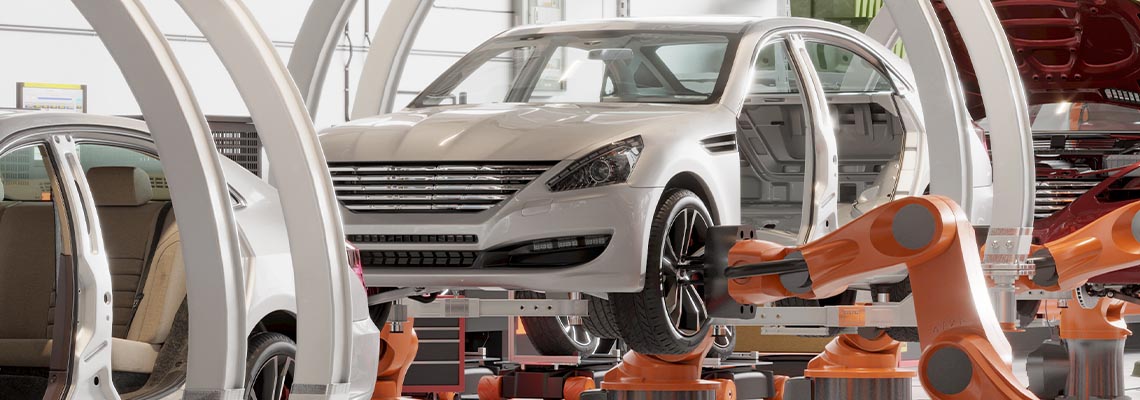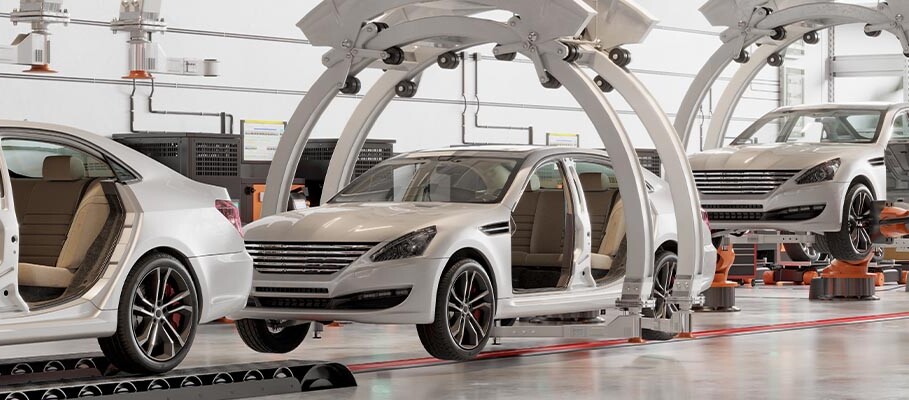Table of Contents
- Tesla Sales Decline: A Market in Freefall
- EV Market Shifts Challenge the European Manufacturer of Car Parts
- Strategic Considerations for the Manufacturer of Car Parts in a Changing EV Market
- Pro Tip: Partner with Mobility-as-a-Service Providers to Supply Corporate Cars
- Fleet Operators Moving Away from Tesla Lease Deals
- EV Component Demand Evolves: Batteries for Electric Cars and More
- Tesla’s Supercharger Network: How It Affects the Manufacturer of Car Parts
- Is the Tesla Stock Price Drop a Financial Risk for the Manufacturer of Car Parts?
- Conclusion
1. Tesla Sales Decline: A Market in Freefall
Tesla’s grip on the EV market is slipping as its once-unmatched sales continue to decline. The company, which revolutionized electric mobility, is now struggling to keep its position in key markets.
In the first half of 2025, the numbers tell a clear story:
- Germany: Model Y sales dropped by 45%.
- UK: Model 3 demand fell by 52%.
- France: Model Y and Model S sales declined by 48%.
- Norway: Model X registrations shrank by 60%.
This decline isn’t happening in a vacuum. Established automakers like VW, Ford, and GM have stepped up their EV production, rolling out models that offer better reliability, more competitive pricing, and improved technology.
At the same time, new players from China and Europe are flooding the market with affordable alternatives that are quickly gaining traction.
Adding to Tesla’s struggles is the fading appeal of its Tesla lease deals. Both fleet operators and individual buyers are starting to look elsewhere due to concerns over resale values and service reliability.
With resale prices dropping, many fleet managers now prefer alternative corporate cars that promise better long-term value. Meanwhile, Tesla’s service network, long criticized for delays and limited repair centers, is driving more customers away, further dampening Tesla sales.
As a result, Tesla’s reputation as the leader in EV innovation is at risk. The company now faces growing pressure to fix service issues, enhance customer confidence, and fend off rising competition.
Meanwhile, every manufacturer of car parts that once relied on Tesla must adapt to a market where demand is shifting toward more established brands and new EV contenders.
In this turbulent period, as shifting market demands, supply chain disruptions, and rising costs reshape the automotive industry, finding the right manufacturer of car parts is more critical than ever. Explore europages’ product listing dedicated to trusted manufacturers of car parts.
2. EV Market Shifts Challenge the European Manufacturer of Car Parts
For the European manufacturer of car parts, Tesla’s downturn is creating a ripple effect across the supply chain. Many suppliers that once relied on Tesla’s high-volume production are now facing uncertainty, forcing them to rethink their strategies and diversify their customer base.
Several key trends are emerging as the industry adapts to this shift:
- Battery suppliers must diversify as demand for batteries for electric cars slows. With Tesla no longer dictating EV battery needs, suppliers are looking to legacy automakers and emerging brands like VW, Ford, and GM to sustain growth.
- Producers of car accessories need to adapt to changing vehicle platforms. As corporate fleets and individual buyers shift toward other EV brands, demand is increasing for accessories that are compatible across multiple models.
- Semiconductor providers are redirecting supply to automakers with more stable demand. Tesla’s fluctuating production volumes have led chip suppliers to prioritize manufacturers that offer consistent order volumes and long-term growth potential.
For the manufacturers of car parts, these market shifts present both risks and opportunities. Companies that can quickly adapt, expand their customer base, and align with the broader EV industry will be in a stronger position to navigate the volatility and secure long-term success.

3. Strategic Considerations for the Manufacturer of Car Parts in a Changing EV Market
To stay ahead in this changing industry, the manufacturer of car parts must assess how to remain competitive and meet the evolving needs of automakers.
Every manufacturer of car parts should now consider these three critical questions:
How can you reposition your product offerings for non-Tesla EV makers?
With Tesla’s demand shrinking, suppliers must identify which automakers are expanding production and tailor their product lines accordingly. Ensuring compatibility with multiple vehicle platforms will be crucial in capturing new market opportunities.
What strategic partnerships can help mitigate over-reliance on a single automaker?
Diversifying customer bases is an important step towards stability. Establishing relationships with a range of companies—both legacy brands and new EV entrants—can help a manufacturer of car parts maintain steady demand and avoid production slowdowns linked to a single automaker’s struggles.
What new materials or technologies should be prioritized?
As the EV market evolves, automakers are focusing on lighter materials, improved batteries for electric cars, and advanced electronics. Suppliers must stay informed about emerging trends and invest in innovations that will be in high demand across multiple manufacturers.
Answering these key questions allows every manufacturer of car parts to strengthen their resilience, minimize reliance on Tesla, and secure long-term success in the broader EV industry.
4. Pro Tip: Partner with Mobility-as-a-Service Providers to Supply Corporate Cars
While many suppliers still focus mainly on traditional automakers and established EV brands, consider proactively engaging with emerging mobility-as-a-service (MaaS) providers.
Companies offering subscription-based services, shared corporate cars, flexible leasing solutions, and app-based EV rentals are experiencing rapid growth across Europe. These services often require specialized products, such as durable, modular car accessories, adaptable battery-management solutions, and easily maintainable components designed for heavy, shared usage.
Forming strategic partnerships with MaaS companies now can position a manufacturer of car parts as an early mover in this fast-growing segment. Not only can this approach diversify your customer base beyond automakers, but it also opens new revenue streams and provides insights into changing consumer mobility preferences.
Are you looking for a manufacturer of car parts to help your business capture these emerging opportunities? Request a free quote on europages to find the ideal supplier.

5. Fleet Operators Moving Away from Tesla Lease Deals
Corporate fleet managers are re-evaluating their reliance on Tesla, as a range of issues make the brand less attractive for the Tesla company car lease agreements.
Fleet operations require reliability, predictable costs, and strong resale values—areas where Tesla is currently facing challenges.
Several factors are driving this shift:
- Declining resale values: Uncertainty about Tesla’s long-term performance is directly impacting leasing rates. As resale prices fall, fleet managers face increased costs when rotating vehicles, making Tesla lease deals a less attractive option.
- Service challenges: Tesla’s limited repair network poses significant challenges for fleet reliability. With fewer service centers and long wait times for repairs, businesses are finding it difficult to keep Tesla vehicles on the road.
- Stronger alternatives: Legacy automakers like VW and Ford are offering car lease terms that cater to the needs of corporate fleets. With a well-established servicing infrastructure and historically stable resale values, these automakers provide an alternative that some fleet managers find more aligned with their operational priorities.
The shift away from Tesla is directly impacting the manufacturer of car parts. As fleet operators transition to other EV brands, suppliers must adapt to varying vehicle specifications, evolving aftermarket demands, and shifting maintenance standards set by different automakers.
6. EV Component Demand Evolves: Batteries for Electric Cars and More
With Tesla’s influence waning, demand in the EV components sector is undergoing significant changes. Automakers are increasingly turning to new partners and manufacturers of car parts, causing notable shifts in the supply landscape:
- Alternative battery suppliers: Companies like CATL and LG Energy Solution are seeing increased demand as automakers diversify their battery sourcing away from Tesla-centric suppliers.
- Advanced semiconductor providers: With EV technology becoming more sophisticated, manufacturers of high-performance semiconductors are gaining prominence, catering to automakers prioritizing performance, efficiency, and reliability.
- Emergence of new materials: Automakers are investing heavily in new materials designed to reduce vehicle weight, improve battery performance, and improve overall vehicle efficiency. This trend is prompting every manufacturer of car parts to explore innovations that meet these evolving requirements.
These changes give the European manufacturer of car parts a chance to partner with automakers that offer more stable growth. Suppliers that adapt quickly to the needs of both new and established EV brands will find success in this increasingly flexible and innovative market.
For more information on recent developments and trends in the electric mobility sector, read this recent insightful report published by The International Energy Agency (IEA).
7. Tesla’s Supercharger Network: How It Affects the Manufacturer of Car Parts
Tesla’s decision to open its Supercharger network to other automakers marks a significant strategic shift.
The Supercharger network is Tesla's proprietary network of fast-charging stations, designed specifically for Tesla vehicles to quickly recharge their batteries during long trips.
This move could lead to several notable impacts:
- Weakened brand exclusivity: Allowing competitors to access its charging stations could reduce Tesla's exclusivity, potentially diminishing a key advantage that set its vehicles apart from other EV brands.
- New business opportunities: Charging infrastructure providers now have the chance to expand their services, developing solutions compatible with multiple brands. This diversification may attract significant investment and innovation within the charging market.
- Shift toward universal solutions: The industry could move toward standard charging solutions, reducing the need for Tesla-specific parts. Manufacturers of car parts specializing in Tesla components must quickly shift to products that are universal or compatible with many different brands.
For a manufacturer of car parts involved in energy storage and charging solutions, adapting rapidly to these changes will be crucial for long-term competitiveness.
8. Is the Tesla Stock Price Drop a Financial Risk for the Manufacturer of Car Parts?
Tesla’s recent stock collapse has raised concerns throughout the supply chain, creating uncertainty for companies closely linked to the automaker.
European manufacturers of car parts are particularly affected in several key areas:
- Supplier contracts: Uncertainty surrounding Tesla’s financial stability has left many suppliers questioning the long-term viability of their contracts. Companies dependent on Tesla are now facing the risk of reduced orders or contract cancellations.
- R&D funding: Tesla may significantly reduce investments in research and development, potentially slowing innovation and impacting technology-driven suppliers. Businesses reliant on Tesla’s R&D initiatives could face budget cuts or project delays.
- New model development: Slower production cycles due to financial constraints may lead to fewer parts orders. A manufacturer of car parts who counted on Tesla’s rapid innovation and frequent model updates might experience reduced demand and increased operational uncertainty.
To safeguard their financial health, the European manufacturer of car parts must proactively strengthen their partnerships with stable automakers.
Diversifying client portfolios and partnering with financially stable automakers will help suppliers reduce risks tied to Tesla’s instability, supporting sustained growth despite market volatility.
Are you a manufacturer of car parts looking for more exposure and growth? Request a consultation on europages and start building the strategic business partnerships you need to thrive in a changing automotive market.

9. Conclusion
Tesla’s sales crisis of 2025 is reshaping the automotive industry and challenging every manufacturer of car parts to quickly adapt.
With significant declines in Tesla sales across Europe and increasing pressure from legacy brands like VW and Ford, suppliers are rethinking strategies, shifting away from Tesla-centric products, and pivoting toward diversified, more stable partnerships.
Corporate fleets abandoning Tesla company car lease deals, a rapidly evolving market for batteries for electric cars, and Tesla’s open Supercharger network all amplify the need for flexibility and innovation among manufacturers of car parts.
Yet, beyond these immediate shifts, another important question emerges: How will sustainability regulations shape supplier decisions in the coming years?
With the European Union and national governments proposing stricter standards for EV production, recycling, and battery sourcing, the manufacturer of car parts face new regulatory challenges—and opportunities.
Companies that align early with sustainable practices could find a competitive edge, attracting new business and leading the next wave of automotive innovation.
Could regulatory compliance and sustainable manufacturing become the next significant differentiator in the EV supply chain?
For more information on the global supply chain and automotive industry, read these informative articles on europages’ Inside Business blog:
Trump’s 2025 Tariffs Hit EU Provider of Raw Materials
Will the Army Armament Affect the Supplier of Metallurgy?
E-fuels: the future of sustainable transport? | Europages

